Tennessee Williams: Mad Pilgrimage of the Flesh (91 page)
Read Tennessee Williams: Mad Pilgrimage of the Flesh Online
Authors: John Lahr
Tags: #Biography & Autobiography, #Literary

BOOK: Tennessee Williams: Mad Pilgrimage of the Flesh
3.45Mb size Format: txt, pdf, ePub
With Anna Magnani on the set of
The Rose Tattoo
The Rose Tattoo
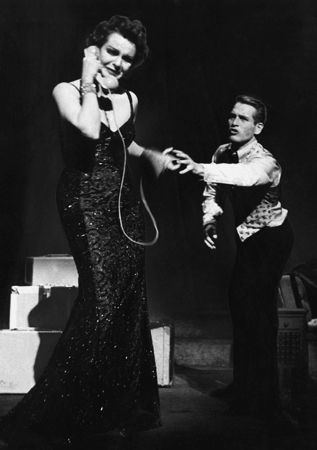
Geraldine Page and Paul Newman,
Sweet Bird of Youth
Sweet Bird of Youth
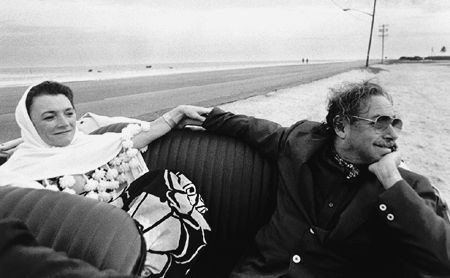
With Maria St. Just, Key West, 1974
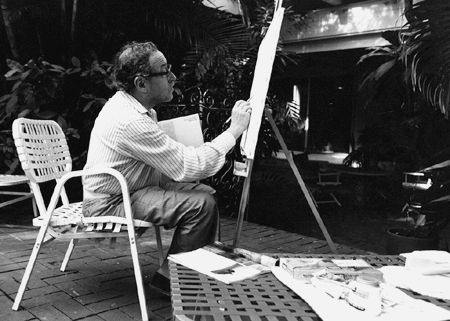
Key West
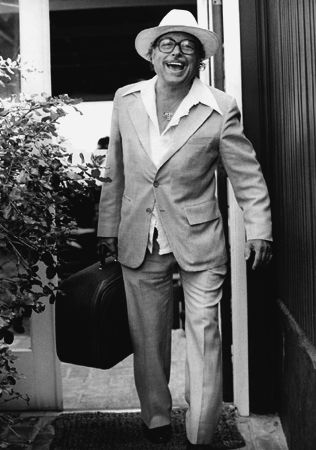
Malibu, 1978
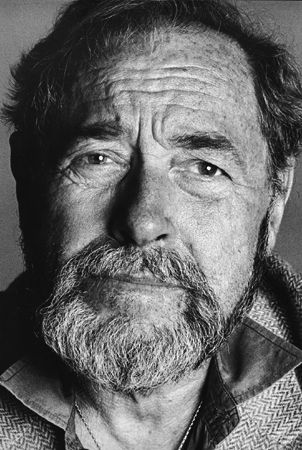
Acknowledgments
I’M AWARE THAT many Williams fans have been waiting a long time for me to cough up this book. A biography takes time; I wouldn’t have been able to rush it even if I’d wanted to. Nonetheless, twelve years from start to finish is pushing the envelope. I’m grateful to have lived long enough to complete this particularly challenging narrative trek. The climb would not have been possible without the generous and loyal support of many others along the way.
I salute: David Aaronovitch, Ginny Agnew, David Allentuck, Katherine Allentuck, Hilton Als, Jesse Angelo, Herman Arrow,* Elizabeth Ashley, Mary Babcock (copy editor), Jonathan Baker, Emilio Banda, Milly S. Barringer, Gregg Barrios, Megan Beatie, Joseph P. Benincasa, Megan Bernard, Georges and Anne Borchardt, Robert Bray, Andreas Brown, Ann Caserta, Mark Cave, Frank Corsaro, Meg Courtney, Jere Couture,* Paul Davis, Josephine DePetris, Mitch Douglas, Julia Druskin, Richard Eyre, Arcadia Falcone, David Finkle, Roy Flukinger, Horton Foote,* Patrice Fox, Peggy L. Fox, Leslie Garis, Lynn Goldberg, Ann Goldstein, Robert Gottlieb, Julie Grob, Harold Guskin, Allean Hale, John Hancock, Cathy Henderson, Kenneth Holdich, Trudie Homan, Anne Jackson, Frances Kazan, Nick Kazan, Thomas Keith (Chronology), Arthur Kopit, Shelagh Kufpfe, Tony Kushner, Jane Lahr, Stanley Ledbetter, Jennifer B. Lee, Margo Lion, Felicia Londre, Zoulema Loup, Sidney Lumet,* James Malcolm, Kendra Malinowski, Lynne Maphies, John Maxtone-Graham, Peter Mears, Mike Medavoy, JoAnne Metsch, Richard Mikel, Seymour Milbert,* Arthur Miller,* Judy Morris, Gregory Mosher, Peg Murray, Linda Briscoe Myers, Mike Nichols, Sean Noel, Richard Oram, Harold Paisner, Jay Parini, Kent Paul, Michael Polonsky, Daniel Rabinowitz, Dotson Rader, Leo Rangell,* Rachel Routh, Michael Ryan, Alan U. Schwartz, Ann Schneider (photo editor), Daniel H. Sheehan III, Ed Sherin, Katie Smither, Declan Spring, Thomas F. Staley, Elaine F. Tankard (research), Margaret Tufts Tenney, John Uecker, Jeff Umbro, Eli Wallach,* Rick Watson, George C. White, David Wilk, Dakin Williams,* Richard Workman.
A tip of the cloth cap also to friends in London’s psychoanalytic community whose conversation and insights over the years have helped to broaden my understanding of Williams: Gregorio Kohon and his paper “Kafka at the Borders,” Donald Campbell, Stephen Grosz, Priscilla Roth. A special shout-out to Christopher Bollas, whose books (
Hysteria
,
Shadow of the Object
,
Being a Character
) and high-spirited gab fests have been a constant source of provocation and revelation.
Hysteria
,
Shadow of the Object
,
Being a Character
) and high-spirited gab fests have been a constant source of provocation and revelation.
The
New Yorker
has been the joy of my writing life. It has also brought many literary angels to my table: Ty Baldwin, my steadfast right-hand man; Jennifer Stahl, the supremo of fact-checkers; and Deborah Treisman, my inspired editor for the last thirteen years whose finesse has been a great gift. The manuscript bears the marks of these experts. At Norton, it was my good fortune to have found a splendid, caring collaborator in John Glusman, the editor in chief of the publishing house and my editor, who has overseen this complex project with elan. The enthusiasm and generalship of Bill Swainson at Bloomsbury, my English publisher, has also been the biography’s good fortune.
New Yorker
has been the joy of my writing life. It has also brought many literary angels to my table: Ty Baldwin, my steadfast right-hand man; Jennifer Stahl, the supremo of fact-checkers; and Deborah Treisman, my inspired editor for the last thirteen years whose finesse has been a great gift. The manuscript bears the marks of these experts. At Norton, it was my good fortune to have found a splendid, caring collaborator in John Glusman, the editor in chief of the publishing house and my editor, who has overseen this complex project with elan. The enthusiasm and generalship of Bill Swainson at Bloomsbury, my English publisher, has also been the biography’s good fortune.
As I draw the final curtain on this endeavor, I would like to clasp hands with Lyle Leverich, who started me off, and with my wife, Connie Booth, whose faith in me and the project has kept me going through the book’s long gestation. From the outset of our courtship nearly twenty-five years ago, Tennessee Williams has been a constant part of our conversation. In her earlier career as a professional actress, Connie played Laura in the 1977 London production of
The Glass Menagerie
, a performance that was admired by Williams, who came backstage to tell her so. Her intuitive understanding of the man and his family unhappiness informs these pages.
The Glass Menagerie
, a performance that was admired by Williams, who came backstage to tell her so. Her intuitive understanding of the man and his family unhappiness informs these pages.
JL
London
October 9, 2013
* Deceased
Chronology
1907
Edwina Estelle Dakin (1884–1980) and Cornelius Coffin Williams (1879–1957) marry in Columbus, Mississippi, on June 3 and then move to Gulfport, Mississippi.
1909
The couple moves to Columbus, Mississippi, to live in the Episcopal rectory where Edwina’s father, the Reverend Walter E. Dakin (1857–1954), and her mother, Rosina Isabel Otte Dakin (1863–1944), lived. A traveling salesman, Cornelius is on the road for long periods of time.
Rose Isabel Williams is born on November 19.
1911
Thomas Lanier Williams III is born on March 26. In the family, he is known as “Tom.”
1913
The family moves to Nashville, Tennessee, where the Reverend Dakin becomes pastor at the Church of the Advent.
1914
Cornelius takes a job as a traveling salesman for the International Shoe Company of St. Louis.
1916
The Reverend Dakin returns to Mississippi in January to become rector of Grace Church in Canton, and St. Mary’s in Lexington, as well as serving as the minister in Durant. During this time, the Williams family lives in Canton.
Tom contracts diphtheria, almost dies, and is bedridden for at least a year.
1917
In February the Reverend Dakin becomes rector of St. George’s Church in Clarksdale, Mississippi. The Williams family joins him there later that year, and Tom is enrolled in the first grade for the 1917–18 school year.
1918
Cornelius accepts a managerial position in the St. Louis, Missouri, office of the International Shoe Company. Edwina and Tom arrive in St. Louis in July. When Rose joins them in September, the children attend Eugene Field Elementary School.
1919
Tom’s brother Walter Dakin Williams, called Dakin, is born on February 21.
1920
Tom stays with his grandparents in Clarksdale, Mississippi, for the 1920–21 school year.
1921
For the next decade, Tom will spend the majority of his summers either in Clarksdale or in the other Southern towns where his grandparents are residing.
1922
Tom attends Stix School, where he meets his future girlfriend, Hazel Kramer.
1924
Edwina buys him a secondhand typewriter for ten dollars.
Tom’s first published story, “Isolated,” appears in Blewett Junior High School’s newspaper,
The Junior Life
, in November.
1925
His first published poem, “Nature’s Thanksgiving,” appears in
The Junior Life
in November.
Rose is sent to All Saints College in Vicksburg, Mississippi.
1926
Tom enrolls in Soldan High School in January and transfers to University City High School in June.
1927
His essay “Can a Good Wife Be a Good Sport?” wins the third prize of five dollars in a
Smart Set
magazine contest and is published in May.
1928
While attending University City High School, his short story, “The Vengeance of Nitocris,” is published in an August issue of the pulp magazine
Weird Tales
.
Tom’s maternal grandfather Dakin takes him to New York City, where they see the original Broadway production of
Show Boat
, then board the RMS
Homeric
for an eleven-week tour of Europe, from July 6 to September 12, with visits to London, Paris, Monte Carlo, Naples, Rome, Milan, and Cologne, among other locations.
1929
Tom graduates from high school and enrolls at the University of Missouri, Columbia, in September, where he joins the Alpha Tau Omega fraternity.
1930
His first one-act play,
Beauty Is the Word
, wins sixth place in a Dramatic Arts Club contest at the university—it is unusual for a piece by a freshman to make it to the finals.
1931
Tom enrolls at the University of Missouri School of Journalism in September.
In October he is inspired by Russian actress Alla Nazimova in the Theatre Guild’s touring production of Eugene O’Neill’s
Mourning Becomes Electra
and decides that he will write for the theater.
1932
He fails ROTC during the spring term and is taken out of college by his father and put to work as a clerk at the International Shoe Company.
Three hundred miles north of Havana, Hart Crane jumps to his death from the ocean liner
Orizaba
.
That November Tom casts a vote for president for the first and last time, pulling the lever for Socialist candidate Norman Thomas.
1934
Tom continues writing daily in the family attic and while on the job at the shoe company.
Other books
The Holy Machine by Chris Beckett
Seeing the Light (A Marie Jenner Mystery Book 1) by E. C. Bell
Dust to Dust: A Broken Fairy Tale by S. P. Cervantes
Sapphique - Incarceron 02 by Catherine Fisher
Murder At The Mendel by Gail Bowen
Dear Money by Martha McPhee
The Eternal Darkness by Steven A. Tolle
After Moonrise: Possessed\Haunted by P.C. Cast
Among the Shadows by Bruce Robert Coffin
World War III by Heath Jannusch